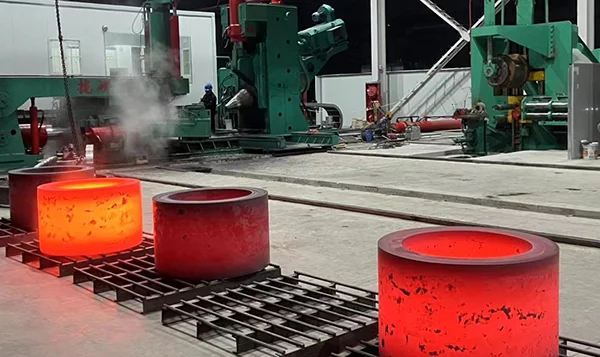Hydraulic forging presses are machines that utilize hydrostatic liquid pressure for metal forging. They are commonly used for free forging processes such as upsetting, piercing, mandrel hole expansion, offsetting, twisting, cutting, bending, and drawing. These products are widely applicable, capable of pressing various workpieces. In ring rolling, they perform initial pressing and piercing operations. A full range of tonnages is available, from 100-ton to 30,000-ton forging presses, meeting the customized needs of clients across different fields.
Requires the use of molds. Pressure is applied to the metal blank through the molds to shape it within the mold cavity. This type offers high production efficiency and high dimensional accuracy for forgings, suitable for mass production of uniform specification forgings.
Does not require molds and can perform free forging on metal billets. It offers high flexibility, making it suitable for single-piece or small-batch production and the processing of large forgings.
Replaces air hammers and is ideal for forging smaller components.
Suitable for materials with narrow forging temperature ranges, such as titanium alloys and stainless steel.

Know the limits, break them, and customize forging machine solutions to cater to your seamless rolled ring production needs.
The main equipment includes: a forging manipulator for handling raw materials, a hydraulic forging press for upsetting and piercing the blank, a forging manipulator for blank transfer and positioning, a radial-axial ring rolling machine for ring rolling, a forging manipulator for finished ring removal, and a straightening press for correcting ring deformation.
Learn More